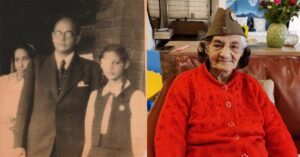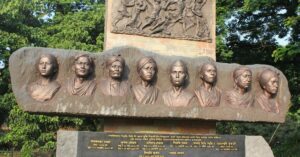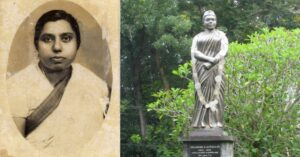Do or Die: An Ode to the Speech That Inspired India to Give Its All for Independence
On 8 August 1942, Gandhi addressed the masses from the Gowalia Tank Maidan in Bombay (now Mumbai) and exhorted them to participate in the Quit India Movement.

Even as the Second World War was going on, Indians were fighting a battle of their own, and political forces in India, like the Indian National Congress, along with Mahatma Gandhi, were severely pressurising the Britishers to leave the country.
In 1942, Winston Churchill, who was the Prime Minister of the United Kingdom at the time, sent Sir Stafford Chips, a member of the War Cabinet, to India, to discuss changes in Indian politics.
However, when the Indian National Congress and the Muslim league discovered that the proposal had no provision for Indian politicians to make decisions in military strategy, the negotiations fell through.
This resulted in Gandhi igniting the fire of a mass protest against British rule in India, and it came to be known as the Quit India Movement.
On 8 August 1942, Gandhi addressed the masses from the Gowalia Tank Maidan in Bombay (now Mumbai) and exhorted them to participate in the Quit India Movement.

Here are some excerpts from his speech.
“Occasions like the present do not occur in everybody’s and but rarely in anybody’s life. I want you to know and feel that there is nothing but purest Ahimsa in all that I am saying and doing today. The draft resolution of the Working Committee is based on Ahimsa; the contemplated struggle similarly has its roots in Ahimsa. If, therefore, there is any among you who has lost faith in Ahimsa or is wearied of it, let him not vote for this resolution…”
Although Gandhi was the torchbearer of non-violence, and strongly believed that the principle would be a perfect weapon against the tyranny of the British government, he wasn’t blind to its imperfections.
“I know how imperfect our Ahimsa is and how far away we are still from the ideal, but in Ahimsa there is no final failure or defeat. I have faith, therefore, that if in spite of our shortcomings, the big thing does happen, it will be because God wanted to help us by crowning with success our silent, unremitting Sadhana1 for the last twenty-two years…” he said.
Gandhi wanted the masses to question their fight. The fight, according to him, was not against the current ruling power but rather against the concept of imperialism. Without the clarity as to what they were battling, the Indian population might have won a battle but lost the war.
“Then, there is the question of your attitude towards the British. I have noticed that there is hatred towards the British among the people.
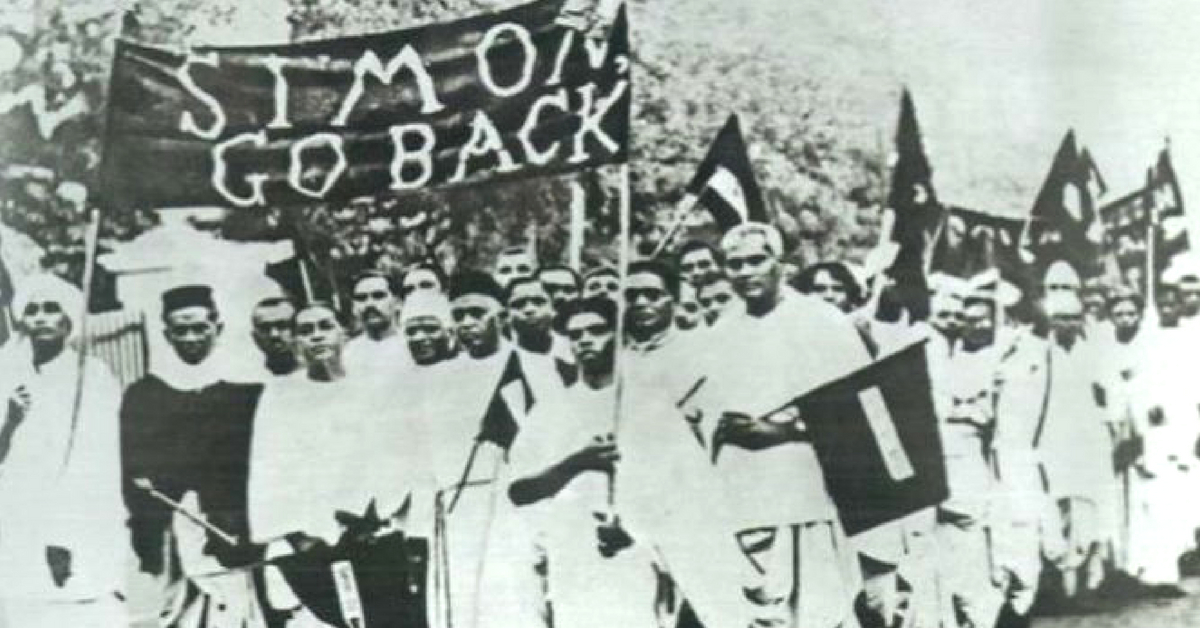
The people say they are disgusted with their behaviour. The people make no distinction between British imperialism and the British people. To them, the two are one. This hatred would even make them welcome the Japanese. It is most dangerous. It means that they will exchange one slavery for another. We must get rid of this feeling. Our quarrel is not with the British people; we fight their imperialism…” Gandhi explained.
After the resolution to kick-start the Quit India Movement was passed with a clear majority, Gandhi addressed the leaders in another speech, on the same day, from the same place.
You may also like: The Untold Story of ‘Satyananda’, the Only American to Join India’s Fight for Freedom
“I congratulate you on the resolution that you have just passed. I also congratulate the three comrades on the courage they have shown in pressing their amendments to a division, even though they knew that there was an overwhelming majority in favour of the resolution, and I congratulate the thirteen friends who voted against the resolution. In doing so, they had nothing to be ashamed of. For the last twenty years, we have tried to learn not to lose courage even when we are in a hopeless minority and are laughed at. We have learned to hold on to our beliefs in the confidence that we are in the right. It behoves us to cultivate this courage of conviction, for it ennobles man and raises his moral stature. I was, therefore, glad to see that these friends had imbibed the principle which I have tried to follow for the last fifty years and more…”
But even as Gandhi’s Quit India movement was soon to be set in motion—the next day, in fact— the communal tension between the Hindus and the Muslims was still an important issue to be addressed.
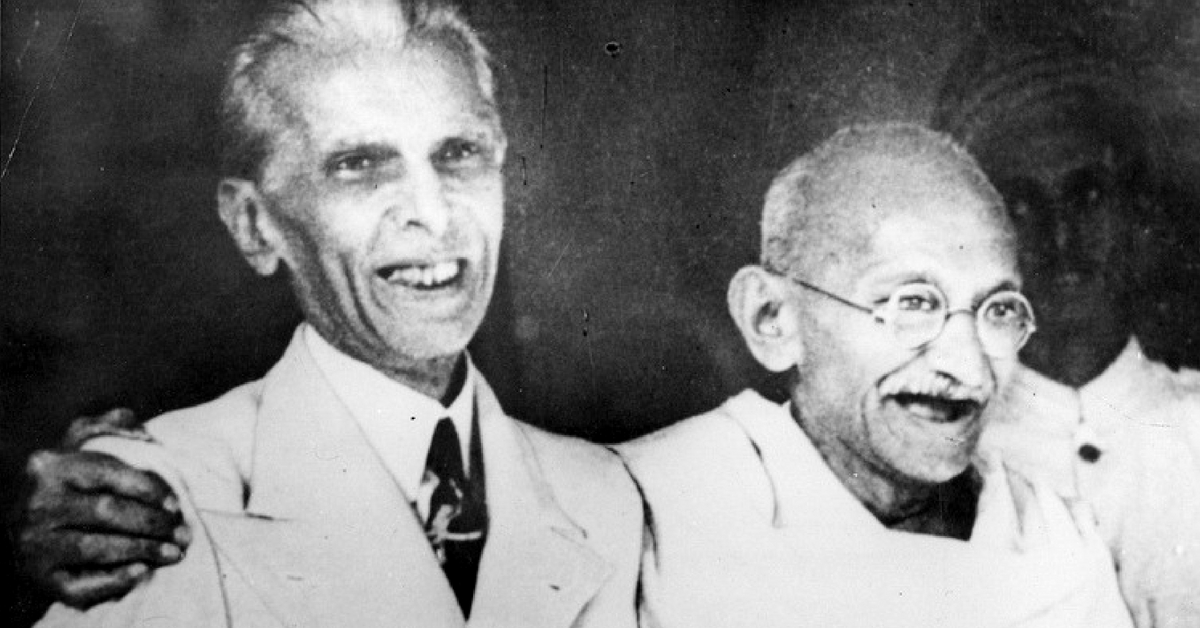
“Time was when every Mussalman claimed the whole of India as his motherland. During the years that the Ali brothers were with me, the assumption underlying all their talks and discussions was that India belonged as much to the Mussalman as to the Hindus. I can testify to the fact that this was their innermost conviction and nor a mask; I lived with them for years… Thousands of Mussalman have told me, that if Hindu-Muslim question was to be solved satisfactorily, it must be done in my lifetime. I should feel flattered at this; but how can I agree to [the] proposal which does not appeal to my reason? Hindu-Muslim unity is not a new thing. Millions of Hindus and Mussalman have sought after it…”
Gandhi even spoke about his plans to have a word with the Viceroy, demanding freedom from British imperialism, and as Indian leaders were talking to the British, it was important for the common citizens to support their leaders publicly. The most important thing for the public was to have faith in their leaders.
At times, while political procedures progress behind the doors, suspicion starts arousing among the masses. Gandhi wisely wanted to prevent that from happening.
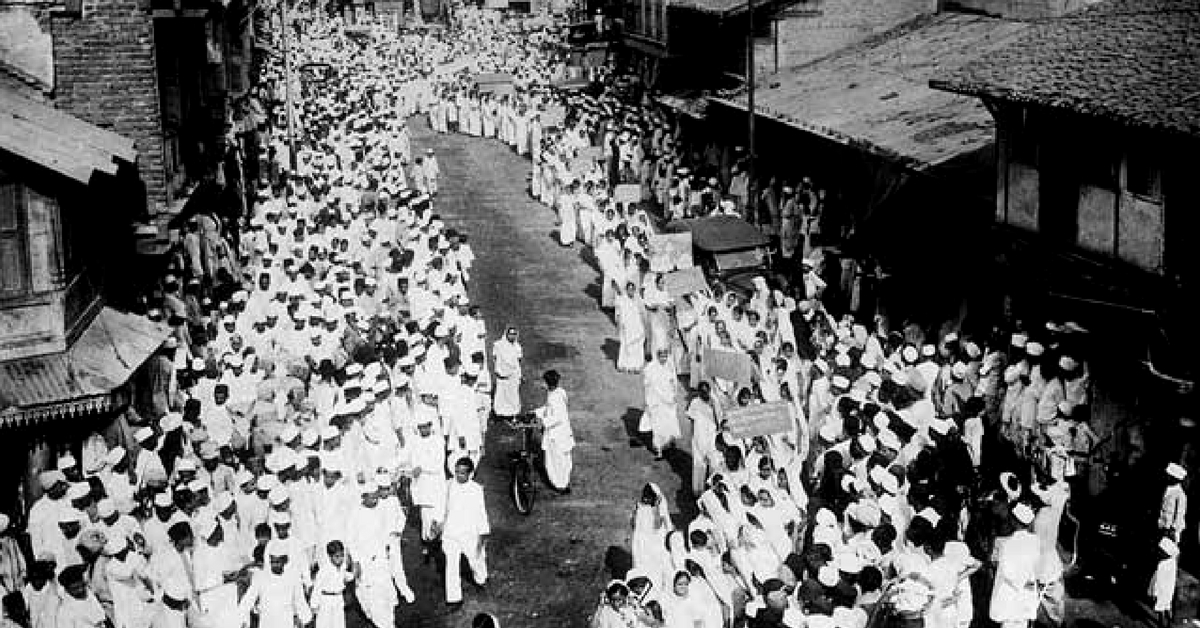
So, addressing the common man, he said, “You have only placed all your powers in my hands. I will now wait upon the Viceroy and plead with him for the acceptance of the Congress demand. That process is likely to take two or three weeks. What would you do in the meanwhile? What is the programme, for the interval, in which all can participate?… The fourteen fold constructive programme is, of course, there for you to carry out. What more should you do? I will tell you. Every one of you should, from this moment onwards, consider yourself a free man or woman, and acts as if you are free and are no longer under the heel of this imperialism.
You may also like: Legacy of Lal-Bal-Pal: The Legendary Trio Who Stood For Swaraj & Swadeshi Ideals!
It is not a make-believe situation that I am suggesting to you. It is the very essence of freedom. The bond of the slave is snapped the moment he consider[s] himself to be a free being. He will plainly tell the master: “I was your bond slave till this moment, but I am a slave no longer…”
It was here that Gandhi declared his famous call to action, ‘do or die’, which would become a chant across the country—for people to give their all in the fight against the British.
“Here is a mantra, a short one, that I give you. You may imprint it on your hearts and let every breath of yours give expression to it. The mantra is: ‘Do or Die’.
We shall either free India or die in the attempt; we shall not live to see the perpetuation of our slavery. Every true Congressman or woman will join the struggle with an inflexible determination not to remain alive to see the country in bondage and slavery. Let that be your pledge. Keep jails out of your consideration. If the Government keep me free, I will not put on the Government the strain of maintaining a large number of prisoners at a time, when it is in trouble. Let every man and woman live every moment of his or her life hereafter in the consciousness that he or she eats or lives for achieving freedom and will die, if need be, to attain that goal. Take a pledge, with God and your own conscience as witness, that you will no longer rest till freedom is achieved and will be prepared to lay down your lives in the attempt to achieve it. He who loses his life will gain it; he who will seek to save it shall lose it. Freedom is not for the coward or the faint-hearted.”
Within 24 hours of making this speech, the British government arrested Gandhi, along with several other Congress leaders.
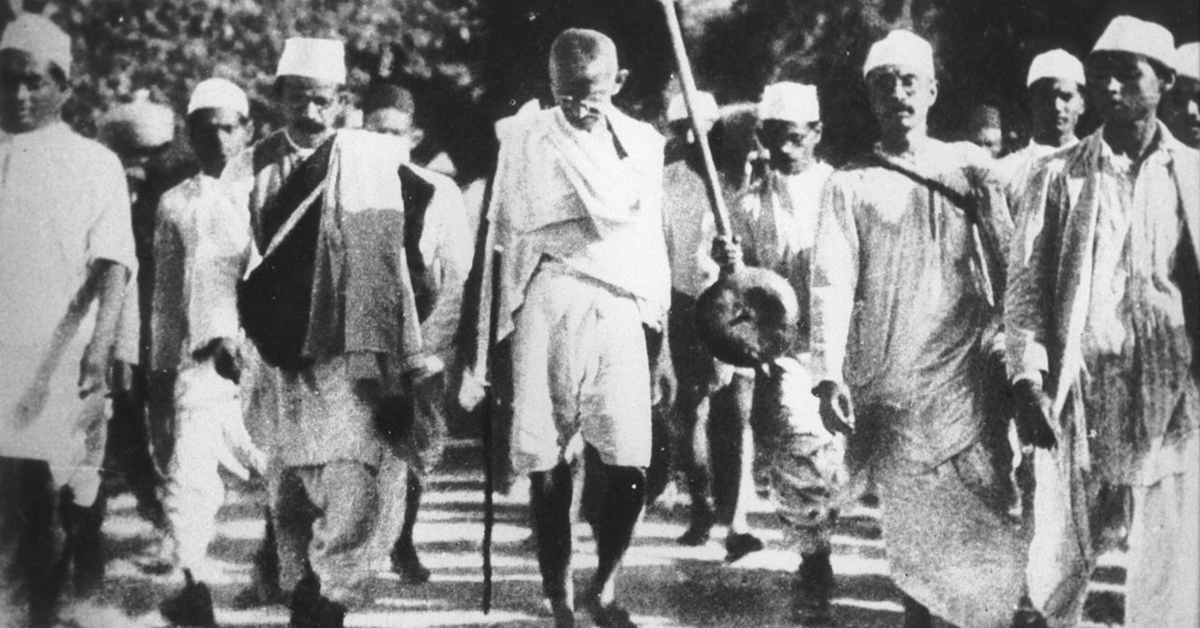
Imprisoned with his wife, Kasturba in the Aga Khan Palace in Poona (Pune), Gandhi fasted for 21 days in protest. Kasturba was suffering from bronchitis and even had several heart attacks under imprisonment. She died in 1944, just a month before Gandhi was finally released.
Even as their leaders were imprisoned, Indians took to the streets the next day, on 9 August 1942 and started the Quit India movement.
You may also like: 14 Inspiring Speeches By Indians You Can’t Afford To Miss
Although the movement itself faced a lot of opposition from various other political parties, it succeeded in keeping the Congress party united. The arrest of all major political leaders from the party prompted Aruna Asaf Ali, a relatively lesser-known activist to preside over the AICC on 9 August.
The Congress party was banned by the government following this, giving the party even more public support!
(Edited by Gayatri Mishra)
Like this story? Or have something to share?
Write to us: [email protected]
Connect with us on Facebook and Twitter.
This story made me
- 97
- 121
- 89
- 167
Tell Us More
We bring stories straight from the heart of India, to inspire millions and create a wave of impact. Our positive movement is growing bigger everyday, and we would love for you to join it.
Please contribute whatever you can, every little penny helps our team in bringing you more stories that support dreams and spread hope.






